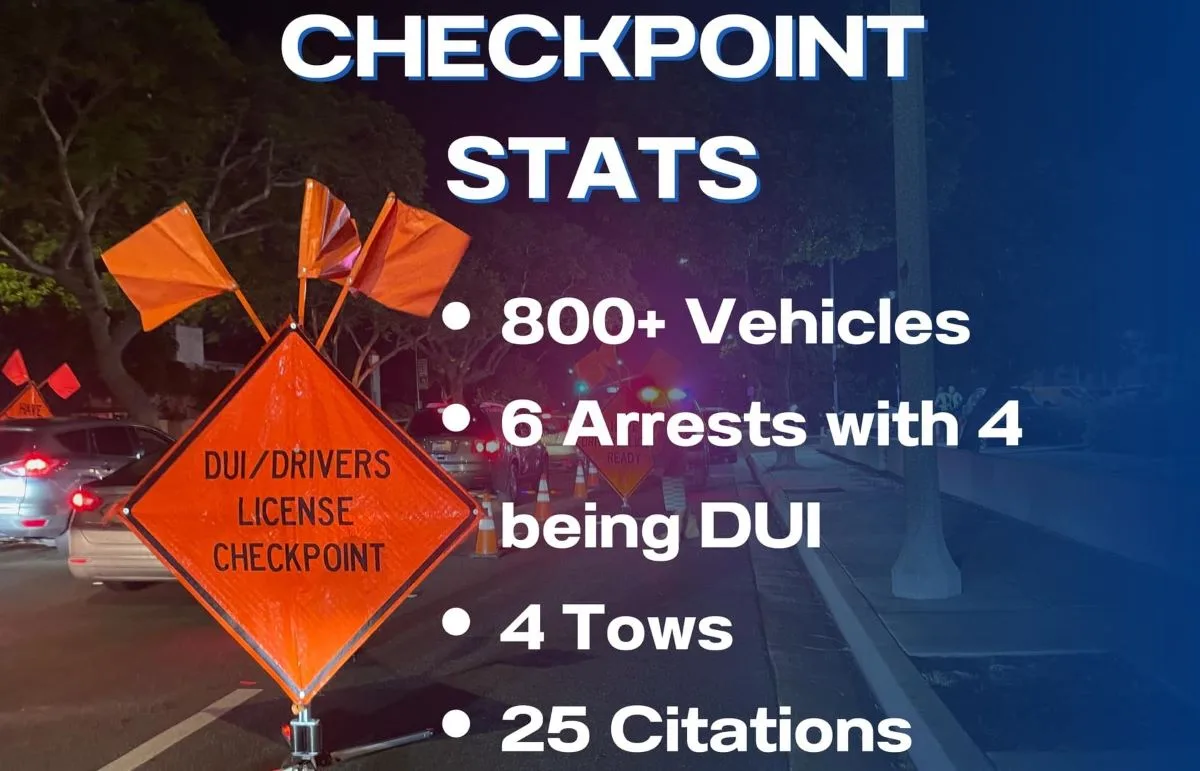
This post was originally published on this site
On Friday night, the Garden Grove Police Department conducted a DUI checkpoint to help raise awareness and educate drivers on the dangers of driving under the influence.
Over 800 vehicles drove through the DUI checkpoint. Six drivers were arrested with four facing DUI charges. Four vehicles were towed and impounded. The police also issued 25 citations.

MADD Victim Volunteer Matthew Thomas was also at the location. Mr. Thomas is a victim/survivor of a DUI crash who now does outreach and education.
In June of 1991, Thomas made the decision to ride in the passenger seat of his intoxicated friend’s Volkswagen Beetle. That night, the two were in a serious accident that left the driver with a broken leg, and landed Matt in the hospital in critical condition and in a coma, with just a 5% chance of living.
Everyone was told to not expect very much out of Matt for the rest of his life. He was not even expected to be able function on his own after that night, if he ever came out of the coma.
Thomas was in a coma for three months. When he came out of the coma, everyone knew that there was a long, grueling road ahead. Matt wasn’t even able to think on his own yet. He spent another month in the hospital before returning home, only to face a 12-month in-house head injury program through Northridge Hospital called the TGI Care House.
At the time, he still could not read, write, shave, shower, or dress on his own. These were all skills that he had to re-teach himself. Before long, Matt was beginning to feed himself, talk and even start to walk again. After much faith and sometimes near-superhuman determination, Matt surprised even the doctors with how far he has come with regaining his abilities.
As the years progressed, Thomas became an advocate for not only the consequences of intoxicated driving, but also the support that disabled people and coma patients need in order to improve their quality of life. Thomas is a spokesperson for Mothers Against Drunk Driving (M.A.D.D.). He spends his time giving speeches about drinking and driving in schools and trying to get through to people before they could potentially make the same mistakes he did. He also works tirelessly with coma patients, using his unique approach, of what he calls his “Coma-dentials”.







